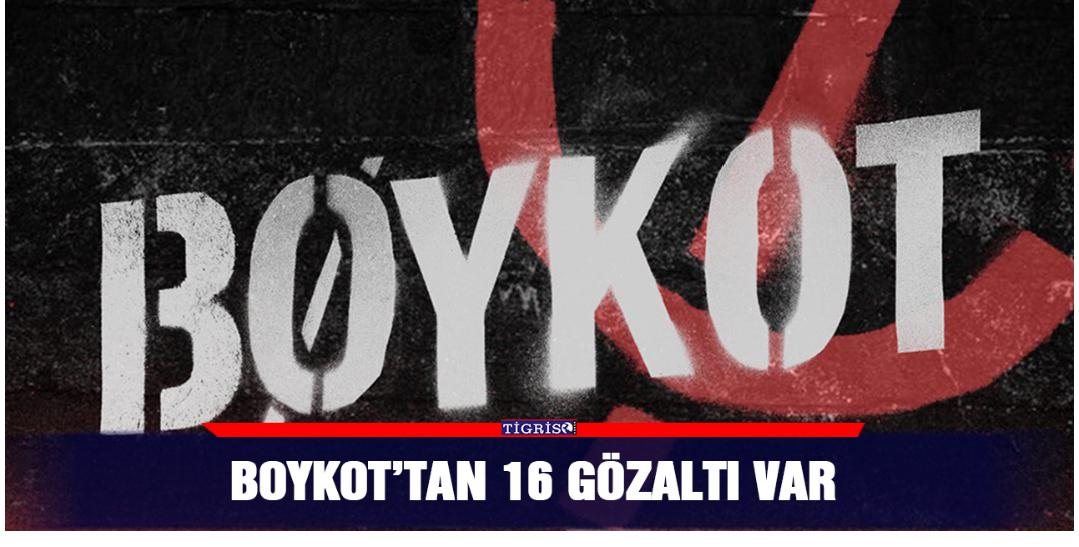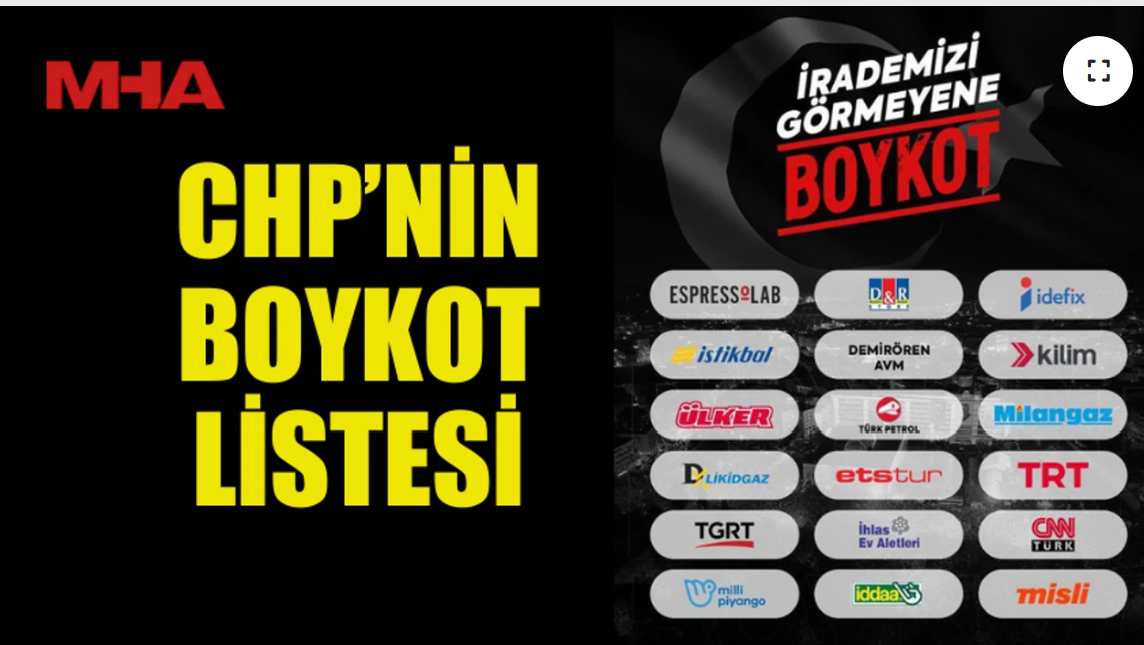Why is AKP so afraid of the boycott?
 boykot
boykot
The March 19 operation, in which CHP’s presidential candidate Ekrem İmamoğlu and many of his colleagues were detained, was a test of strenght by the government. The public’s extraordinary reaction serves as a “counter-response” to this test of power. The boundaries in the political arena are being redrawn.
From the beginning, the government has worked hard to frame the accusations against İmamoğlu as an "internal CHP conflict." They claimed that it had nothing to do with political competition in the country, that the judiciary was acting independently, and that Erdoğan had no involvement in the process. However, this propaganda was not effective enough to convince the majority of society. The public perceived the detention as a threat to the country's democracy. The government believed it could manipulate public perception, but it was mistaken.
Another miscalculation was the government’s failure to accurately gauge the potential of social opposition. It is highly likely that they expected only institutional opposition and wild-cat protests in response to the March 19 operation. However, they did not anticipate widespread mass resistance across the country, let alone the uprising of university students—who were assumed to be "apolitical." Even after the protests began and rapidly grew over the following days, the establishment did not seem overly alarmed. They assumed that the anger would blow over soon, and the crony system would remain intact.
[embed]https://www.youtube.com/watch?v=Ia_KCIM06GA&t=55s[/embed]
However, contrary to the expectations of those in power, the resistance took on a character that blended political and economic grievances, thereby increasing its impact and transformative potential. The large-scale boycott that took place nationwide yesterday was an extension of this. Calls for action on social media received high engagement, and many prominent figures joined the boycott movement. Citizens exercised their legitimate power as consumers to pressure companies into revising their ethical standards.
At this point, public dissent became a "tangible threat." The government's panic was evident from the midnight live broadcasts of ministers, their early morning social media posts, and the prosecutor's office launching an investigation. They collectively declared the boycott as an act of "sabotage against the national economy." According to their narrative, those participating in the boycott were harming economic stability, undermining investor confidence, and acting against national interests. Imagine, a presidential candidate was arrested after a diploma from 31 years ago was annulled, yet it was the boycotters who were accused of damaging investor confidence.
Even those who remained silent in the face of unlawful actions and politically motivated arrests suddenly found their voices when it came to the boycott. The business elite, driven by a mix of financial concerns and political fear, could not remain neutral. While they failed to object when fundamental citizenship rights were under attack, they were quick to cry “coup” when citizens exercised their freedom to abstain from consumption.
At this point, it is worth asking: “Whose economy is being harmed?” According to the World Inequality Report, the wealthiest 10% in Turkey receive more than half of all income, while the bottom half of the population benefits from only 12% of the country’s wealth. The richest 10% own 67% of total household wealth, whereas the poorest 50% hold only 4%. The middle 40% accounts for 29% of total wealth. This is the so-called success of the much-praised economic program.
The boycott is frightening because, for the first time, growing social opposition is advancing on an economic-political front. The opposition is no longer questioning the system in fragments; it is challenging it as a whole. They are not just pulling on the thread—they are investigating where the thread leads.
There is another dimension to this issue. Setting aside yesterday’s general boycott, the ongoing boycott movement has been particularly directed at certain brands. The reason is that many of these brands have built their wealth by capitalizing on the consumption habits of the opposition’s social base while simultaneously disregarding their democratic demands and tacitly approving the government’s unlawful repression. In reality, they have thrived through their direct and indirect ties with the regime.
Take, for example, that famous coffee chain… Its name and image are highly sophisticated. It doesn’t sell traditional Turkish cheese desserts; it sells "cheesecake." It doesn’t offer Menengiç coffee, Ottoman coffee, or Dibek coffee on its menu; instead, it serves "Americano," "Cortado," and "Spiced Pumpkin Latte." Of course, anyone can sell whatever they want, and customers can drink whatever they prefer—that is not the issue. But it is hypocritical to profit from the cultural capital of secular white-collar workers while simultaneously siding with a conservative government that seeks to escalate authoritarianism through nationalist rhetoric. The new political landscape no longer tolerates this contradiction.
For the first time in many years, the government is not controlling the political agenda. Social opposition has seized the reins. The government, unaccustomed to such a scenario, is struggling to position itself and generate arguments in a discourse shaped outside its own will. As politics shifts from a professional endeavor to a grassroots movement, the government's ability to dictate the narrative is weakening.
Moreover, the arguments they put forward are weak and fragile. At the beginning of the year, it was the Palace itself that called for a boycott against exorbitant prices. Erdoğan had declared that the most effective response to companies charging high prices was a boycott, emphasizing that citizens had the right to abstain from purchasing. Now, they are trying to portray the same freedom of choice as "treason." This is a clear manifestation of their political exhaustion and desperation.
Just as the establishment has leveled up in repression, the opposition has leveled up in resistance. This new phase may also expose fractures within the ruling bloc, from bureaucracy to the business elite. The key now is to maintain this momentum without hesitation or delay, to explore new and creative avenues of resistance, and to continue the struggle with unwavering determination.
By columnist Berkant Gultekin, Daily BirGun
IMPORTANT DİSCLOSURE: PA Turkey intends to inform Turkey watchers with diverse views and opinions. Articles in our website may not necessarily represent the view of our editorial board or count as endorsement.
Follow our English language YouTube videos @ REAL TURKEY: https://www.youtube.com/channel/UCKpFJB4GFiNkhmpVZQ_d9Rg
And content at Twitter: @AtillaEng



